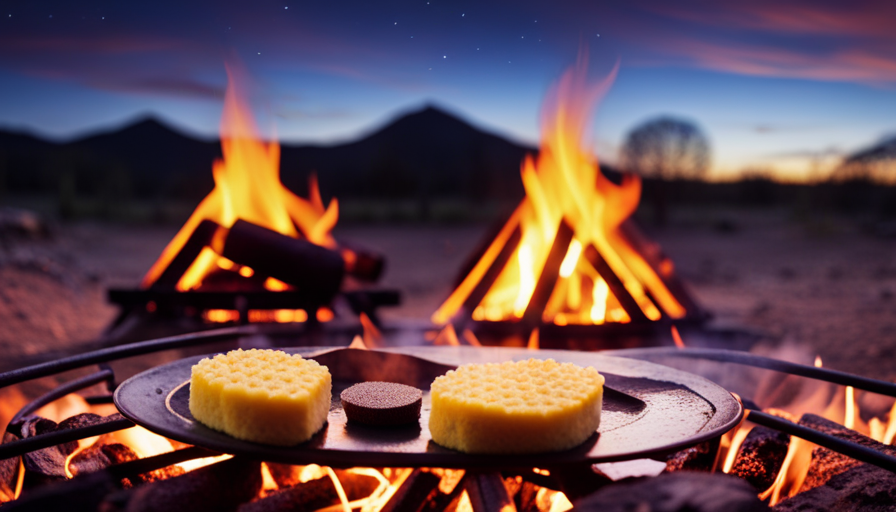Camping is an adventure that offers a unique experience of being close to nature and disconnected from the hustle and bustle of everyday life. However, it also involves dealing with limited resources and being responsible for keeping the campsite clean.
One of the most important aspects of camping is washing dishes, which can be a daunting task without the luxury of a dishwasher. But fear not, with the right techniques and supplies, washing dishes in the great outdoors can be a breeze.
In this article, we will provide you with 7 tips for fast and effective dishwashing while camping. From using biodegradable soap to disposing of food waste properly, we will share our experience-based knowledge to help you keep your campsite clean and your dishes sparkling.
So, whether you’re a seasoned camper or a first-timer, read on to learn how to do camping dishes right.
Supplies Needed
Just as a carpenter needs their tools, a camper needs the right supplies to properly wash their dishes while camping.
Two camping sinks or clean buckets are essential, as well as biodegradable camp soap, an anti-microbial sponge, a compact pot scraper, lightweight microfiber towels, trash bags, and plenty of water.
When selecting camping sinks or buckets, choose ones that are easy to transport and store, and that can hold an adequate amount of water.
Biodegradable camp soap is important because it is environmentally friendly and won’t harm the natural surroundings.
An anti-microbial sponge is ideal for washing dishes, as it prevents the growth of bacteria.
A compact pot scraper is useful for removing stubborn food particles from pots and pans.
Microfiber towels are lightweight and absorbent, making them perfect for drying dishes.
Trash bags are necessary for disposing of food waste, and plenty of water is essential for cleaning dishes thoroughly.
By having these supplies on hand, campers can ensure that they can efficiently and effectively clean their dishes while enjoying the great outdoors.
Steps for Washing Dishes
To properly wash dishes while camping, the first step is to gather all dirty dishes and ideally have two separate sinks for washing and rinsing.
Once the dishes are gathered, add warm water and biodegradable camp soap to the wash sink and fill the rinse sink with clean water.
It is important to start scrubbing dishes with the cleanest ones first and end with pots and pans. Use an anti-microbial sponge and compact pot scraper to help remove stuck-on food waste. If necessary, soak dishes in warm soapy water to loosen any remaining grime.
After scrubbing, rinse dishes in the clean water sink. For extra disinfecting, boil water and use it to rinse dishes. To conserve water, do not fill the sinks all the way. Instead, use rainwater or snow melt if available.
Once dishes are rinsed, air dry them on a clean surface or use lightweight microfiber towels. Pack dishes away before bedtime, dispose of food waste properly, and clean and dry all supplies.
By following these steps, campers can enjoy fast and safe cleanup of their dishes while enjoying the great outdoors.
Additional Tips
Campers should also be mindful of the rules for disposing of gray water and double bagging food waste to avoid spills. Gray water, or wastewater generated from washing dishes, can contain harmful chemicals and microorganisms that can harm the environment. Some campgrounds have designated areas for gray water disposal, while others require campers to carry it out and dispose of it properly. It is important to follow the guidelines and regulations set by the campground to minimize environmental impact.
Double bagging food waste can prevent spills and attract wildlife. Food waste can also create strong odors and attract unwanted pests. It is recommended to store food waste in airtight containers or double bag it and dispose of it properly.
Additionally, campers should only cook what they can eat to minimize waste and conserve resources. By practicing proper waste management, campers can contribute to the preservation of the natural environment and ensure a safe and enjoyable camping experience for all.

